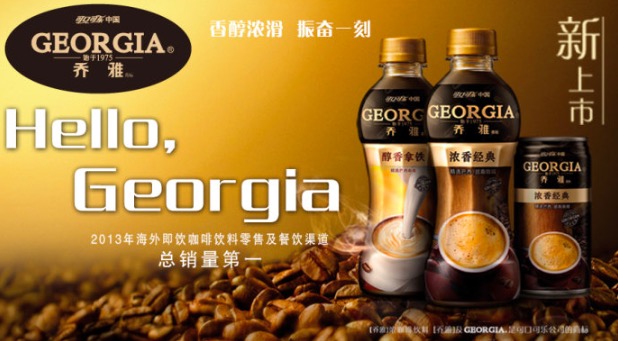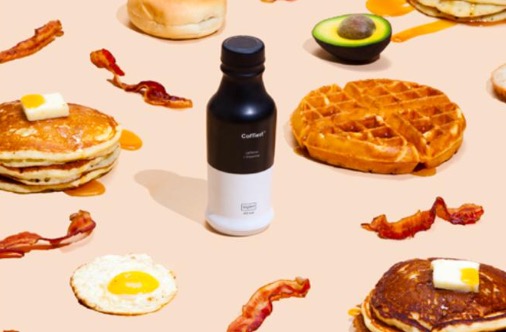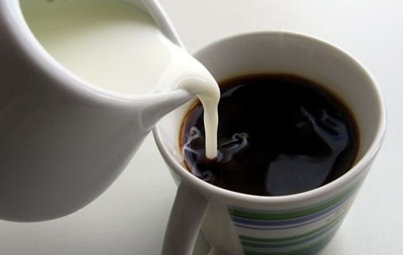Coca-Cola starts selling coffee beans! What signal?
Sales of sugary carbonated soft drinks in the United States have fallen for the 11th year in a row, and Coca-Cola smells the danger.
This time, in addition to canned coffee, it is selling bagged coffee beans to consumers-inevitably competing for business with Starbucks.
[1]
American carbonated drinks fell for the 11th year in a row, and Coca-Cola panicked?
As the world's largest soft drink maker, Coca-Cola has made new trends recently.
They are planning to sell Arabica coffee beans to Brazilian consumers.
Yes, it's not a new coffee bottled drink, but a coffee bean packaging product. It will be sold through a local tea brand in Brazil.
Coca-Cola signed a cooperation agreement with coffee exporter Tristao Companhia de Comercio Exterior, which will be responsible for buying and roasting coffee beans.
It is understood that this plan is related to the breakfast beverage business that Coca-Cola is promoting.
Instead of making continuous efforts on the handy main products and moving upstream to another product category, what kind of move is Coca-Cola playing?
This may have something to do with the fact that carbonated drinks are experiencing a difficult hard landing.
It was previously reported that sales of sugary carbonated soft drinks in the US market had declined for the 11th consecutive year as of last year.
The company, which once sold 75% of its drinks from carbonated drinks, clearly smelled danger.
In contrast, the growth of the non-carbonated beverage market.
In China, coffee is a rapidly growing consumer market. A research report shows that China's coffee consumption market is growing at an annual rate of about 15%, and coffee consumption is likely to exceed 150 billion yuan in the next five years.
In 2013, China became the third largest market for Coca-Cola, and years of in-depth operation have made the influence of the brand deeply rooted in the hearts of the people, making it easier to promote the market cultivation of new products.
Coca-Cola's sale of coffee beans in Brazil looks like the vanguard of a large-scale entry into the coffee market.
[2]
"healthy and sugar-free" is becoming the general trend of the beverage industry?
Recently, around its diversified layout, Coca-Cola has made frequent and clear signs of acquisitions: it is trying to break away from the established perception of carbonated drinks.
In March this year, Coca-Cola formally completed its wholly-owned acquisition of China's local brand "medium Green coarse Grain King", a company that produces mixed cereal beverages.
More than two months later, I bought AdeS, a brand specializing in soy drinks and fruit juices, from Unilever.
Recently, Coca-Cola invested in LA Aloe, a start-up whose main product is organic aloe juice, a plant drink.
It can be seen that Coca-Cola, which is used to labeling "unhealthy drinks", has high hopes for the market space for "healthy low-sugar" drinks. In a more subtle move, Coca-Cola renamed "Coke Zero" from "Coca-Cola Zero" to "Coca-Cola Zero Sugar" in the UK.
More emphasis is placed on "no sugar", which seems to be the general trend of the beverage industry.
Coca-Cola is suffering its fourth consecutive quarterly decline as consumers in Europe tend to adopt healthier lifestyles, TheDrum reported.
In Japan, the total output of tea drinks has also exceeded that of carbonated drinks. For health reasons, Japanese tea drinks tend to be unsweetened, and the "sugar-free" drinks seem to have reached a consensus in their consumer market.
In the domestic market, this sign is not obvious. Supermarket beverage area on various shelves, conspicuous and easy to reach, often high-sugar and high-calorie drinks, "sweet enough" is still linked to "delicious", very lethal.
Nongfu Spring launched its "sugar-free, 0-calorie" Oriental Leaf series in 2011, and the market response has been lukewarm for five years. Instead, it was listed in the recent hot post "worst drink top5". This summer, its new series of products, "Tea π", returned to sugary drinks.
With the upgrading of consumption and the gradual prevalence of health concepts, healthy and low-sugar plant drinks are becoming popular in the beverage industry from an unpopular category. This time Coca-Cola launched coffee beans, which also added an additional member to the "sugar-free family".
[3]
Coca-Cola's "a Coffee Heart"
In fact, Coca-Cola has coveted the coffee market for a long time.
As early as 2001, Coca-Cola and Nestl é established a half-to-half joint venture company BPW ("Global Beverage Partners"). Coca-Cola is responsible for producing and selling Nestle's ready-to-drink tea and coffee drinks.
In February 2014, Coca-Cola bought a 10% stake in Green Mountain Coffee Roasters, which will become the only official producer and distributor of the Coca-Cola-branded family beverage system.
In September of the same year, Coca-Cola launched coffee beverage brand GEORGIA, one of its brands with annual sales of more than $1 billion, in a sign of its fondness for China's ready-to-drink coffee market.
However, even if Coca-Cola has strong strength in brand, marketing and channel, it still has to face two rivals that can not be ignored in the field of coffee.
-- on the channel, it will face its former partner, Nestl é; offline, it will be Starbucks, a coffee shop chain giant.
Do you want to "play hard", or do you have your own "unique way of playing"? It is not clear yet. Although it seems a long way for the cola giant to become a "coffee giant", more and more bosses are determined to do the coffee business, and anything is possible. Isn't it?

Important Notice :
前街咖啡 FrontStreet Coffee has moved to new addredd:
FrontStreet Coffee Address: 315,Donghua East Road,GuangZhou
Tel:020 38364473
- Prev

The Silicon Valley company that wants you to give up eating now even wants to kill the coffee.
Soylent, a well-known substitute company in Silicon Valley, has launched a new product, Coffiest, which wants to solve the problem of eating breakfast with coffee at once. The new product actually adds coffee flavor to the bottled version of Soylent 2.0, which was launched last year, mainly referring to the addition of 150mg caffeine and coffee flavor, which is equivalent to two small cups of 8 ounces.
- Next

What kind of sparks will happen when coffee beans encounter the Internet?
Original title: what kind of spark will happen when coffee beans encounter the Internet? It is reported that Shandong Taishan Commodity spot Trading Co., Ltd. (hereinafter referred to as Taishan spot) will newly launch Akka coffee beans (raw beans) on the sale and trading system on August 10, 2016. the first day issue price is 9.8yuan / 10g and the commodity trading code is 977002. Shandong Taishan Commodity spot Trading Co., Ltd. is based on "
Related
- Can I make coffee a second time in an Italian hand-brewed mocha pot? Why can't coffee be brewed several times like tea leaves?
- Hand-brewed coffee flows with a knife and a tornado. How to brew it? What is the proportion of grinding water and water temperature divided into?
- What is the difference between Indonesian Sumatra Mantinin coffee and gold Mantinin? How to distinguish between real and fake golden Mantelin coffee?
- What does bypass mean in coffee? Why can hand-brewed coffee and water make it better?
- Unexpected! Ruixing Telunsu lattes use a smoothie machine to foam milk?!
- % Arabia's first store in Henan opens into the village?! Netizen: Thought it was P's
- Does an authentic standard mocha coffee recipe use chocolate sauce or powder? Mocha Latte/Dirty Coffee/Salty Mocha Coffee Recipe Share!
- What is the difference between Vietnam egg coffee and Norway egg coffee? Hand-brewed single product coffee filter paper filter cloth filter flat solution!
- What is the difference between sun-cured and honey-treated coffee? What are the differences in the flavor characteristics of sun-honey coffee?
- How to make Italian latte! How much milk does a standard latte use/what should the ratio of coffee to milk be?

